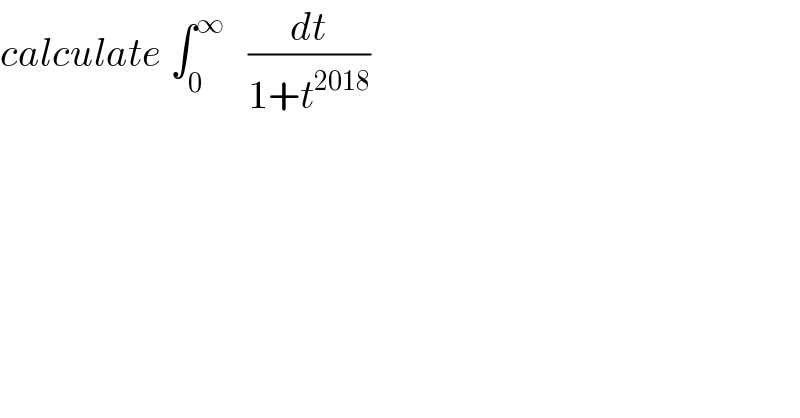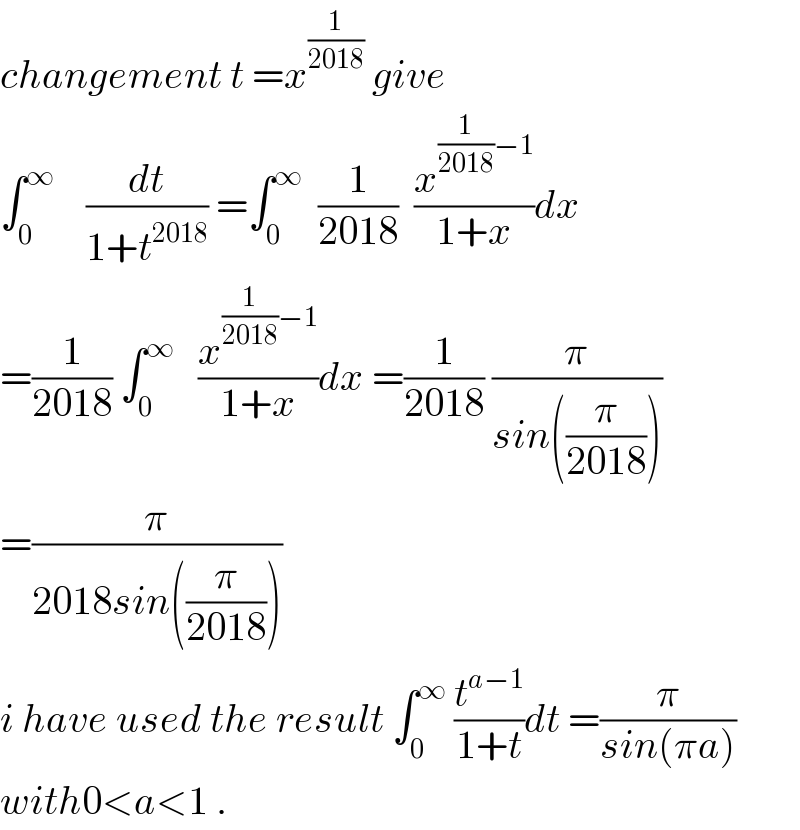Question Number 44587 by maxmathsup by imad last updated on 01/Oct/18

Commented by tanmay.chaudhury50@gmail.com last updated on 02/Oct/18

Commented by prof Abdo imad last updated on 02/Oct/18

Answered by tanmay.chaudhury50@gmail.com last updated on 02/Oct/18

